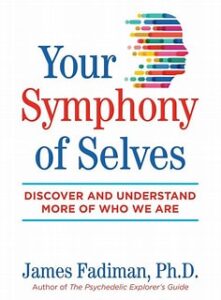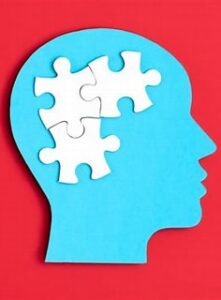SYMPHONY OF SELVES BOOK REVIEW
This is a book review for your symphony of selves: discover and understand more of who we are.
I love this parts perspective. I’m a therapist that works from this part’s perspective so I’m looking at this book from that angle. This book not only has the ability to explain this perspective of how the self is not unitary and we have different parts. It also explains that with that comes different states of mind, different reactions with biology. This book also gives the history of psychology with this perspective.

As a therapist I’m familiar with ego states, and Watkins and Watkins. However, this was very informative on how everything is tied together. If you’re interested in psychology and the history of psychology, there’s a section of the book that’s very good for that. If you’re interested in just understanding yourself, and why in some situations you feel like you’re totally different this is a book that may help you understand yourself.
So, what this book is trying to let people know is that we’re not just one person there are multiple people inside of us. There’s part of you that may act very differently in one situation then you would in another. That’s adaptive that’s normal! This goes into a little bit more detail well a lot more detail about these different aspects of who we are. The different sides, or ego states whatever you want to call it, selves, this is actually the norm.

Looking at something like dissociative identity disorder (DID) some people think we are unitary beings and then some traumatic thing happens, and it fractures the self. Because of the trauma people then think that now there’s multiple selves. This is not quite accurate when you’re looking at it from the parts perspective.
It’s a little bit different in the sense that as someone goes through trauma the consciousness kind of steps back and lets the subconscious or unconscious be present. Someone is on autopilot and that autopilot if they keep going to that develops into its own separate pilot. When this happened there’s no communication from one pilot to the other pilot. Whereas without dissociative identity disorder we may step up to the plate, our game face comes, and we switch gears.
That’s a part of who you are, and that is that parts role. There’s communication.
However, if you don’t step up to the plate and then next thing you know you’re back and sitting down (metaphorically), that’s more like dissociative identity disorder. Whereas there is that disconnect. This book I believe will help you understand yourself, also it will help you understand the people in your lives. Not only is this good for you to understand yourself, but this is good for you to understand those around you. I would highly recommend this book.
“Your symphony of selves: discover and understand more of who we are.”
If you want to watch this video visit Your Symphony of Selves Book Review | Mental Health | Dissociative Disorder – YouTube


